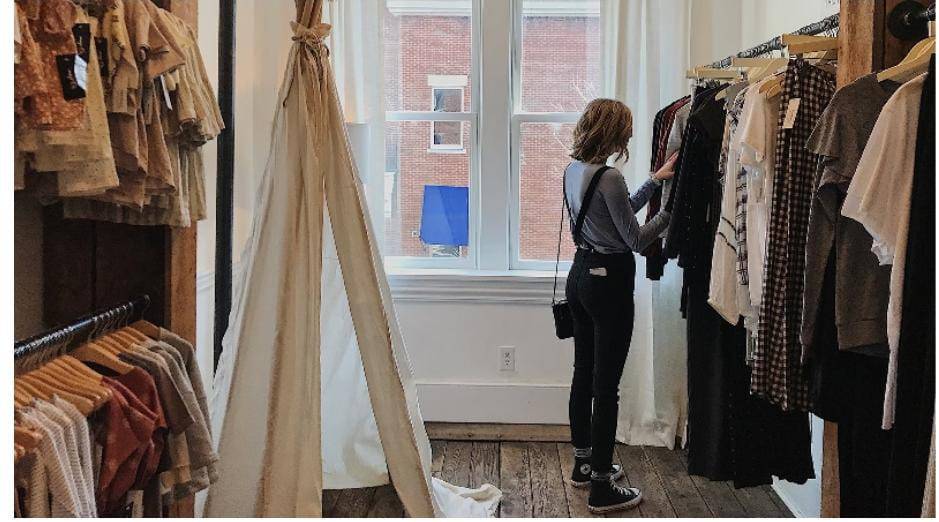The fashion industry has a significant environmental impact, but a shift towards a more sustainable future is underway. The circular fashion economy, which emphasizes reselling and upcycling used clothes, is gaining momentum. China clothes wholesalers play a crucial role in this movement by sourcing and distributing second-hand wholesale clothing. In this article, we will explore the concept of the circular fashion economy, the benefits of reselling and upcycling used clothes, and the role that China clothes wholesalers play in shaping a more sustainable fashion industry.
Understanding the Circular Fashion Economy
The circular fashion economy is a concept that aims to minimize waste, reduce resource consumption, and extend the lifespan of clothing through various practices. It prioritizes the reuse, repurposing, and recycling of garments as alternatives to traditional linear fashion models. By adopting circularity principles, the fashion industry can reduce its environmental impact while creating economic opportunities.
Reselling Used Clothing: Second Hand Wholesale Clothing
Reselling used clothing is a fundamental aspect of the circular fashion economy. It involves sourcing quality second-hand wholesale clothing from various channels, including thrift stores, individuals, and textile recycling companies. China clothes wholesalers play a crucial role by curating and distributing these pre-owned garments to retailers and consumers. Reselling used clothing allows garments to have a longer life, reduces textile waste, and contributes to a more sustainable fashion industry.
Upcycling: Transforming Used Clothes into New Creations
Upcycling is another practice that contributes to the circular fashion economy. It involves transforming used clothes into new creations with higher value. Upcycling not only extends the lifespan of garments but also reduces the need for raw materials and energy-intensive production processes. China clothes wholesalers can collaborate with upcycling designers and brands to offer unique and innovative upcycled clothing options to retailers and consumers.
The Benefits of the Circular Fashion Economy
Embracing the circular fashion economy and investing in second-hand wholesale clothing has several benefits:
Reduced Environmental Impact: By reselling and upcycling used clothes, the circular fashion economy reduces the need for new clothing production, conserves resources, and minimizes textile waste.
Economic Opportunities: The circular fashion economy creates opportunities for retailers, designers, and manufacturers to participate in new business models and tap into emerging markets driven by sustainability-conscious consumers.
Cost Savings: Second-hand wholesale clothing is often more affordable, allowing retailers and consumers to access stylish and quality garments at lower prices.
Unique and Diverse Selection: Reselling and upcycling used clothes offer a wide range of styles, eras, and one-of-a-kind pieces that cannot be easily replicated in traditional retail.
Consumer Engagement: The circular fashion economy encourages consumers to be more mindful of their fashion choices, promoting a culture of sustainability and conscious consumption.
The Role of China Clothes Wholesalers
China clothes wholesalers play a significant role in the circular fashion economy due to their extensive networks, manufacturing capabilities, and expertise in the fashion industry. They:
Source and curate high-quality second-hand wholesale clothing options, ensuring a diverse and appealing selection for retailers and consumers.
Facilitate the distribution of pre-owned garments, making them accessible to a wider audience and contributing to the circular fashion economy.
Collaborate with upcycling designers and brands, supporting the creation and distribution of upcycled clothing lines.
Provide industry knowledge and best practices to retailers and consumers, educating them about the benefits and principles of the circular fashion economy.
Conclusion
The circular fashion economy offers an innovative and sustainable pathway for the fashion industry. Reselling and upcycling used clothes are central to this movement, reducing waste, conserving resources, and fostering economic opportunities. China clothes wholesalers are essential partners in shaping a more sustainable fashion industry by sourcing and distributing second-hand wholesale clothing and collaborating with upcycling designers. By embracing the circular fashion economy, we can move towards a more responsible and ethical fashion future, where style and sustainability go hand in hand.


